
What's up? Well, for one thing, jet isn't officially considered a mineral. A "mineraloid" is as generous as mineralogists allow. One even refers to it dismissively as simply "a rock." Read on, then join my dismay for those who malign such a storied stone.
A GEM WITH ORGANIC ORIGINS
Basically, jet is coal. But no ordinary coal! Most coal was formed in freshwater swamps. Dense mats of vegetation left the immense beds we mine today. Then there's lignite. Lignite also typically formed in freshwater environments but is less fully compressed. Sometimes called "brown coal," it retains evidence of its original woody structure. Jet is often compared to lignite, but try to employ lignite as lapidary material and it crumbles in your hands.
To appreciate the distinct nature of jet, step back to the Jurassic. The conifer Araucaria dotted the landscape. Although currently restricted as a native species to Chile and Argentina, ancient relatives once ranged broadly. It's informally referred to as Monkey Puzzle Tree because an Englishman remarked "it would even puzzle a monkey to climb that tree."
"Classic" jet comes from individual Araucaria trees that fell on land and floated to sea. Once waterlogged, they sank and became buried in muck that eventually turned to claystone. Compressed under the weight of sediments, the trees lost much of their organic content until primarily carbon was left, with a smidgeon of other elements.
Some forms of jet do come from freshwater deposits. These are referred to as "soft jet" versus "hard jet" from marine settings. Deposited as driftwood, jet usually occurs in small lenses recognizable as compressed logs. Like lignite, it retains a degree of its original woody structure, which is sometimes obvious to the naked eye but more often requires magnification.
Diese Geschichte stammt aus der October 2023-Ausgabe von Rock&Gem Magazine.
Starten Sie Ihre 7-tägige kostenlose Testversion von Magzter GOLD, um auf Tausende kuratierte Premium-Storys sowie über 8.000 Zeitschriften und Zeitungen zuzugreifen.
Bereits Abonnent ? Anmelden
Diese Geschichte stammt aus der October 2023-Ausgabe von Rock&Gem Magazine.
Starten Sie Ihre 7-tägige kostenlose Testversion von Magzter GOLD, um auf Tausende kuratierte Premium-Storys sowie über 8.000 Zeitschriften und Zeitungen zuzugreifen.
Bereits Abonnent? Anmelden
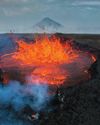
THE BRIGHT SIDE OF VOLCANIC ROCK
As a mineral resource, volcanic rock is decidedly short on glamour.
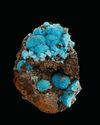
The Other Copper Minerals
12 Lesser-known Collectible Species

MINERAL COLLECTING -AND ROCK & GEM
Evolving Together FOR 54 YEARS
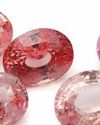
Gemstone Trends
A Look Back at 2024 & What to Expect in 2025
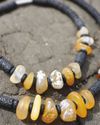
How to Make a GEM BEAD NECKLACE
No Lapidary Experience Needed!
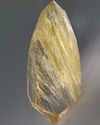
Framing Nature's Art
Faceting Rutilated Quartz for Beginners
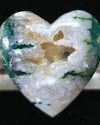
BEDAZZLED BLUE SEAM AGATE
More than several centuries ago, mining was the profession most often seen as befitting of men.
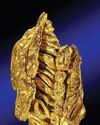
ROCK & GEM FIELD GUIDE:
Spinel is a captivating gemstone with a rich history of being mistaken for gems like ruby and sapphire.
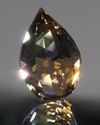
SNAKE SCALE DROP 1.5:1
This Faceting Focus is revisiting the briolette gemstone design because of its popularity with independent and hobby gemstone faceters.
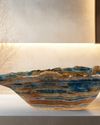
STONE CHIC
How Earth-Inspired Decor Brings Comfort to our Home